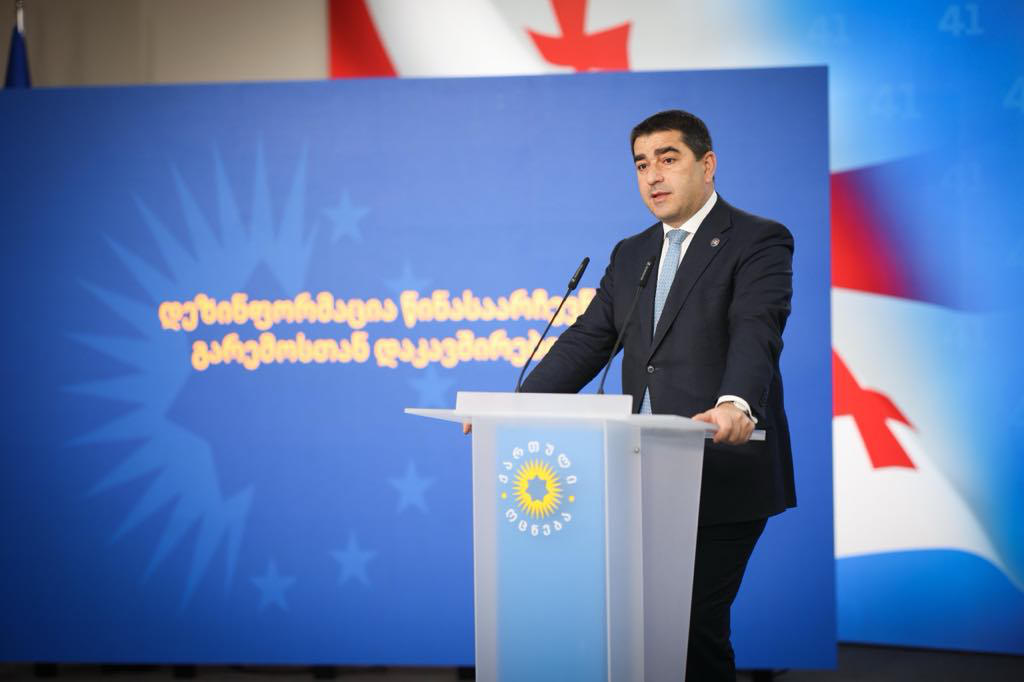The European Commission published its enlargement report, which discusses the steps taken by Georgia. According to the general assessment of Georgia’s progress towards membership in the European Union – writes Shalva Papuashvili on social media.
According to the European Commission, Georgia has made good progress in 12 of the 13 chapters that it assessed in the last year.
According to him, the team will carefully review the expansion document and plan future steps.
“We evaluate the report of European Commission positively. According to the European Commission, Georgia made good progress on 12 of 35 chapters during the past year. It also made some progress on 13 chapters. This is a clear indication that Georgia, despite limited time available for parliamentary work due to the upcoming elections, and despite constant obstruction from the opposition and NGO sector, was making important progress on the road to EU integration.
The European Commission has stated that only one of 35 chapters in the report, which is the chapter on justice and fundamental rights, shows a setback. The European Commission cites the abolition of the gender quotas in the report as well as the adoption of the Transparency Law and the Law on Family Values and the Protection of Minors and the failure to host the LGBT Pride.
In the “group of fundamental questions” that includes this chapter, Georgia is ranked ahead of Ukraine and Moldova.
Our society is not surprised that Georgia has not reached a mutually agreed upon agreement with the European Union regarding transparency and anti-LGBT laws. This was also a major issue in the recent elections, and our society made its position clear. We will continue to discuss this issue with the European Union while taking into consideration the position of Georgians.
Georgia, in addition to its fundamental direction, is ahead of Ukraine and Moldova when it comes to the overall assessment of internal market and competitiveness, which is the essence of the European Union. The European Union was founded around these issues at the time and is still attractive to many.
Georgia is ahead of Moldova in all categories, but only in three – foreign affairs, green agenda, and resources. We are also ahead of Bosnia-Herzegovina, with whom accession talks have also begun.
These 35 chapters represent the European way for Georgia to join the European Union. This is a dynamic and expert process that has seen Georgia move forward in small steps since 2014.
Several representatives of the European Union are also trying to politicize the process. This reckless approach transforms European integration into a political instrument, which ultimately damages both the European integration process and the reputation of the European Union.
I would like to address the term “suspension” that has been used frequently in recent years. The fact that the European Commission has worked on the enlargement documents, assessed Georgia’s development and given us recommendations shows that this term is a more political statement than a situation institutional. While the European Union continues its evaluation of Georgia, we continue to work on issues envisaged by our association agreement. It is about this that European integration is about. It hasn’t stopped and won’t stop. If our successes in this process have taught anything, it’s that European integration is an important job focused on the long-term, and not following the momentary politics conjuncture.
The Georgian Dream, which takes into account the Georgian people’s interests, was the clear winner in the parliamentary election. We have already completed a large portion of the Association Agreement, and we will complete 90% of it by 2020. This brings us significantly closer to EU membership.
We will carefully review the expansion document, and plan our future steps in the best interest of Georgian farmers and entrepreneurs, as well as our citizens. In the past, Georgia worked closely with the European Commission to analyze each area. We are now ready to work with the European Union’s relevant institutions for the same goal.
Read More @ www.interpressnews.ge













